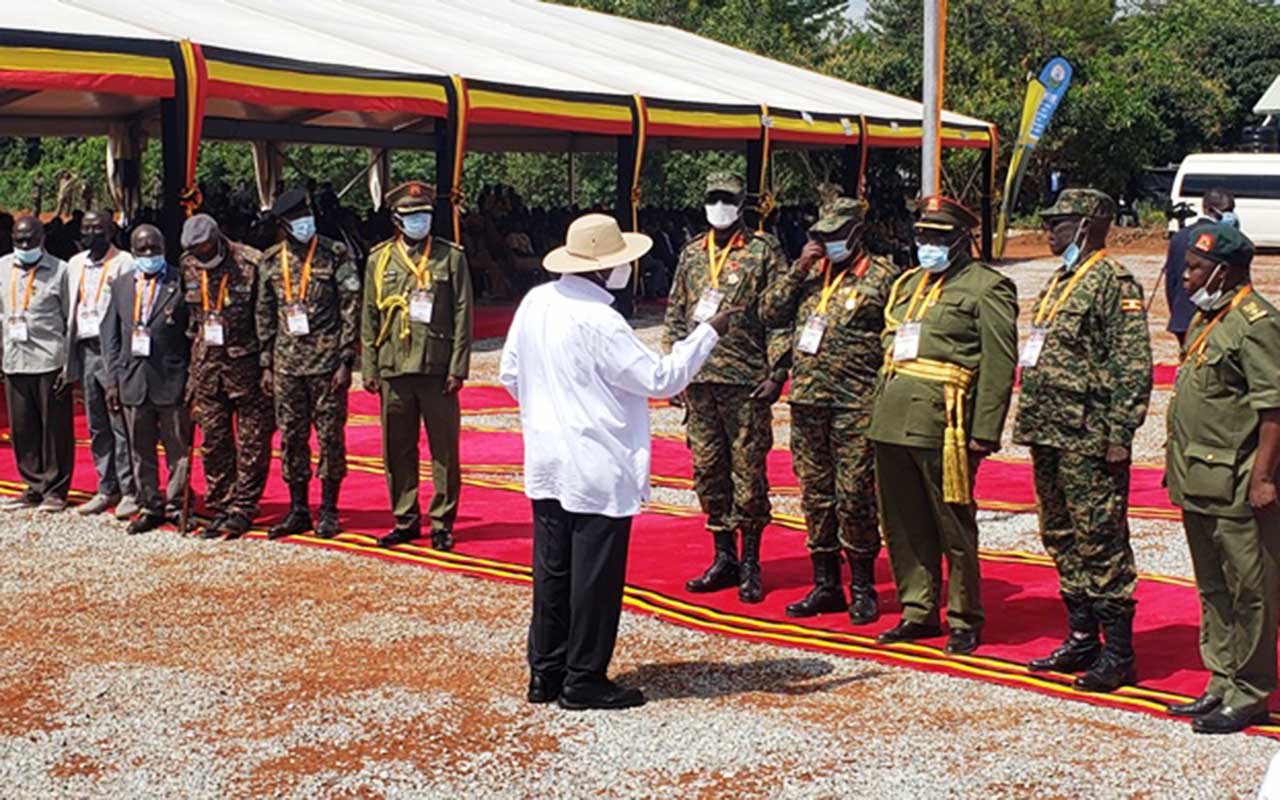Rwanda, Burundi tensions escalate

Burundian President Evariste Ndayishimiye and his Rwandan counterpart Paul Kagame. PHOTO/FILE/AFP
What you need to know:
- Ties between the two countries have been frosty despite both nations having a similar language and ethnic composition.
Tensions between Rwanda and Burundi have continued to escalate after the Burundi President said Rwandan youth were prisoners in their country and he could support their liberation.
Burundi President Evariste Ndayishimiye allegedly made the statements while he was in Kinshasa in the Democratic Republic of Congo on Sunday.
Without referring to any country or person, President Kagame said yesterday, in the State of the Nation address at the 19th National Dialogue Council, said he will do whatever he can to protect his country’s borders.
“When it comes to defending this country that has suffered for so long and nobody came to help, I don’t need permission from anybody to do what we have to do to protect ourselves. I have said it in broad daylight. I have said it to those who matter in this problem,” President Kagame said.
He added: “You go home, sleep. Don’t do anything. There will be nothing crossing these borders of this small country of ours. If anybody attempts!”
President Kagame continued by referring to what is happening as a mere bulging balloon that can be deflated by just piercing it with a needle.
Rwanda’s relationship with the Democratic Republic of Congo and Burundi is deteriorating over allegations of supporting rebellions against each other.
Two weeks ago, Burundi closed its borders with Rwanda, accusing the government of supporting a Burundian rebel group that attacked a village in Western Burundi and killed 20 people last year.
Since the attack, President Ndayishimiye has increased rhetoric against Rwanda and accused President Kagame of funding and supporting the rebels, an allegation Kigali denies.
The latest is in a statement yesterday where his office accused Rwanda of recruiting Burundian refugees in the camps in Rwanda to join Red Tabara, a Burundian rebel group.
On Sunday, President Ndayishimiye said Rwandan youth need to be liberated from the “prison” they have been kept in and promised to back efforts to free them.
A day later, the Rwandan government, in protest, described President Ndayishimiye’s statements as inflammatory and un-African.
“President Ndayishimiye, acting in his capacity as the African Union Champion for Youth, Peace and Security, in an event advertised under the banner of the continental organisation, made several baseless and incendiary allegations aimed at inciting division among Rwandans, and further jeopardising peace and security in the Great Lakes Region,” a statement by the Rwanda government reads in part.
The statement added: “For anyone to try and undermine this progress by calling on young Rwandans to overthrow their government is troubling. But for a leader of a neighbouring country to do so, from an African Union platform, is deeply irresponsible and a flagrant violation of the African Union Charter.”
Before the attacks in Burundi, several pro-Kagame online media had accused the Burundi government of backing Congolese soldiers in Eastern DRC to fight M23 rebels, a group dominated by Tutsi fighters.
Burundi denied those allegations.
The government said it withdrew all its forces that were in Eastern DRC under the East African Community Regional Force in December last year.
M23 rebels, who the United Nations Security Council says are backed by the Rwanda government, accuse the Congolese government of ethnic cleansing targeting the Tutsi community in the DRC, allegations that Kinshasa denies.
Frosty ties
On January 11, the BBC reported that Burundi had closed its borders with Rwanda after accusing its neighbour of funding rebel attacks.
Last December, Red Tabara, a Burundian rebel group, killed 20 people near the border with the Democratic Republic of Congo. Rwandan President Paul Kagame denies the charge, but Burundi’s government has branded him a ‘‘bad neighbour’’.
The Rwandan government said the border closure was an ‘‘unfortunate decision’’, which violated the principles of regional cooperation and the integration of the East Africa Community.
In 2015 Burundi closed its border to Rwanda due to political tensions and then because of Covid-19. Seven years later the borders reopened.
During that time, only land crossings were banned since RwandAir operated its flights to Burundi.



